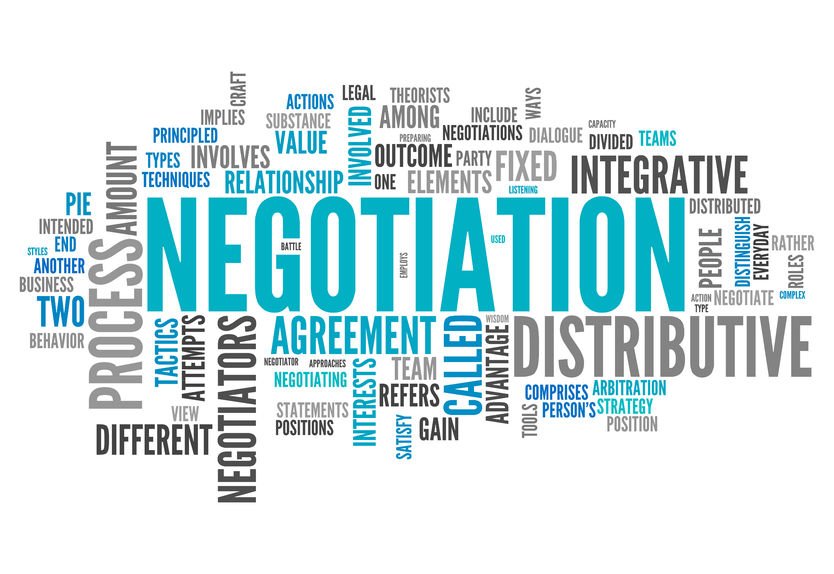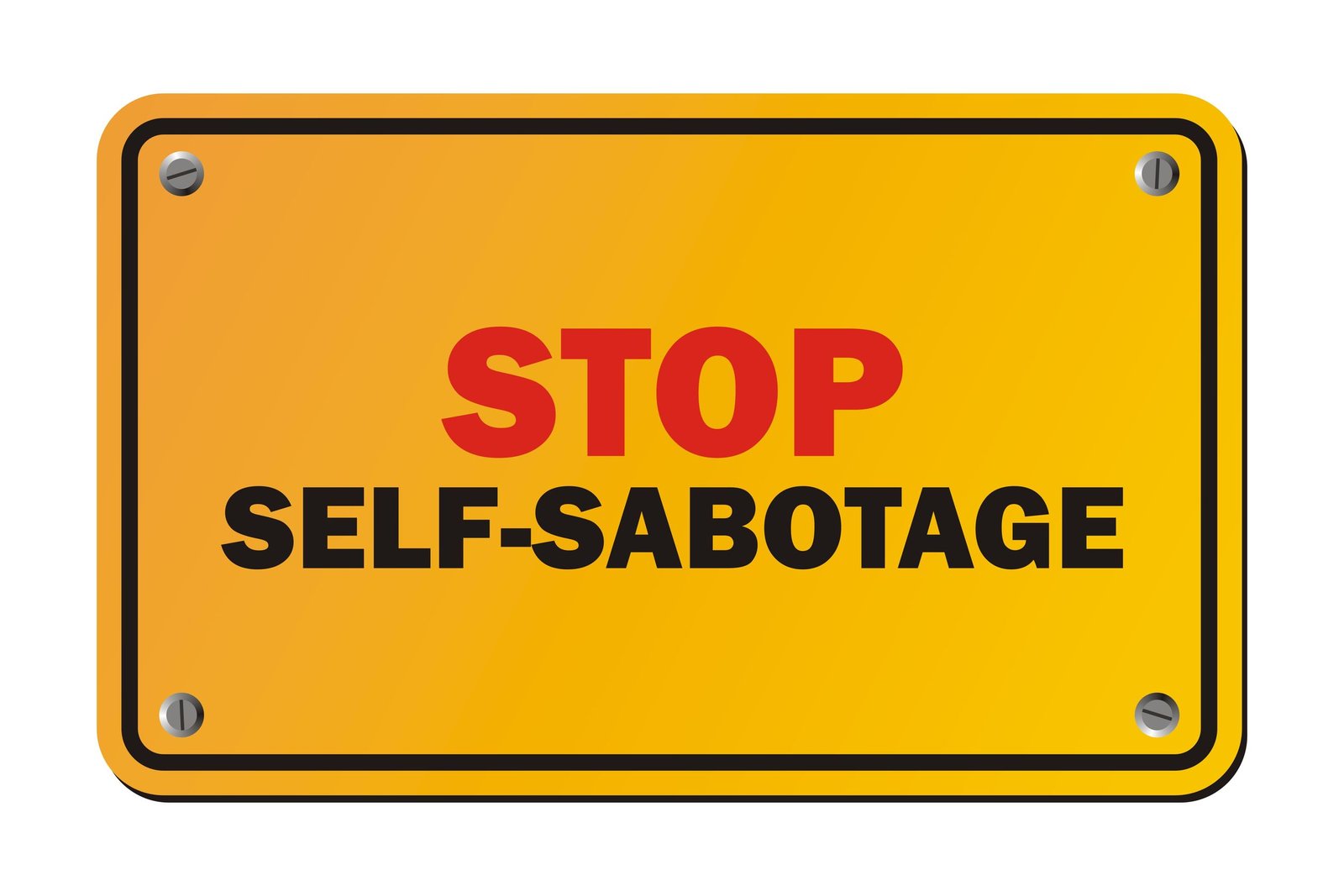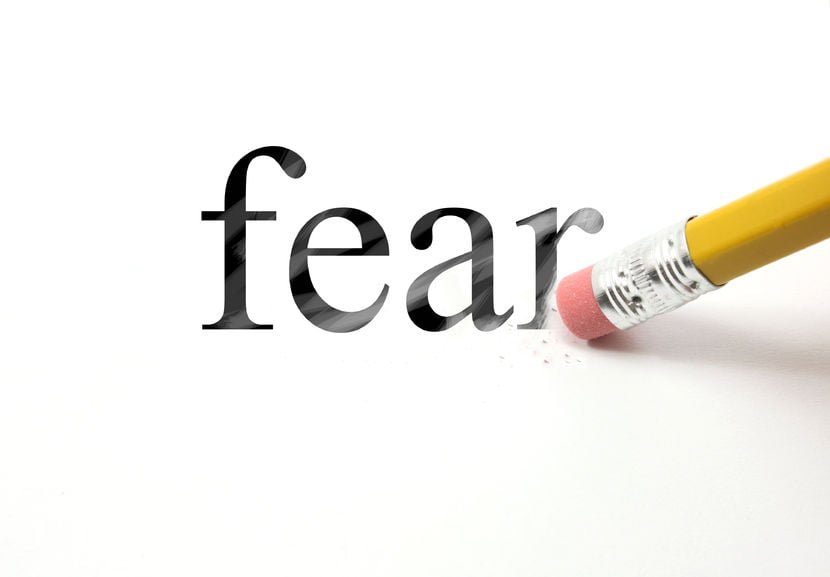by Kevin Hogan, PsyD

Pawn Stars.
It debuted in 2009 and is still running today, 13 years later, albeit with some necessary cast changes. Nevertheless it is one of the finest ways for anyone to learn how to negotiate.
I’ve seen every episode. Most of them twice. The show is so addicting that it’s been spun off in several niches and countries.
The setting is a Pawn Shop. The owners of the company are mostly family. You see items from around the world bought and sold in each episode and you see how various things are valued and priced by both the owners and sellers of anything and everything.
I suggest watching the first seven seasons which were more gritty and less polished for cameras.
There are four basic types of people the guys in the first seven seasons (Rick, Corey and Chum), negotiate with.
1) The smart, savvy customer who brings high value SMALL items (books, jewelry, coins, bills, small stuff that is easy to display) to the store. They know the value. They’ve done their homework and brought their homework with them to the Pawn Shop. I love watching these. Last week there was a book from the 1500’s that Rick bought for $10,000. Both parties were satisfied. Rick’s original book expert Rebecca told him that he could bet 15 – 18 K, maybe more at auction which after 25% commission is really 12 – 15 K. Of course on any given Sunday his store might get a 5 K profit on something as small as a book!
2) The guy who did part of his homework but really didn’t work hard on creating a complete package with provenance, framing, presentation. That means that Rick has to get authentication and figure out a way to sell the item.
3) Ignorant people. These are people who bring something to the shop and ask for $500 because they “thought it would be fair.” They know nothing about the item. Rick’s expert tells them it’s worthless or maybe says it’s worth 20 times MORE. And Rick is always happy to pay a fair price, even if he could have gotten it for nothing. These people simply didn’t know what they had. They wanted to be on TV. For them this is about fun.
4) Stupid people. These people… think they have something REALLY valuable. The expert tells them, for example, that it might retail for 1/3 of what the customer dreamed it is worth to the customer. Then the customer ignores the expert’s exposition and says, the same price they were hoping for originally. This of course drives Rick crazy. The person is a stupid person.
Why STUPID?
The person is ONLY thinking of themselves.
They are thinking that they have something that is worth X and that Rick will automatically want it, whether there is a market or not. Rick will be able to sell it for 3 times what the expert says… because they are sure.
They don’t CARE if Rick makes money on the resale or not.
They are 100% in it for themselves.
And this person is an idiot.
Question: What percentage of people that are customers are composed of stupid people?
Approximately HALF.
I just wish I could give people a Thinking Pill before they make idiots of themselves in public.
How can YOU avoid being STUPID?

Doing something stupid means you are doing something that precludes you from doing something smart to fix what is going to get screwed up.
In other words if you have an option of spending up to $25,000 on something and you use of all of it on your first option, you will have nothing left for you second option.
This… is stupid.
Negotiating must be treated like an investment or a value for value exchange.
You already know that the first attempt at most things doesn’t work out.
Did you marry your first girlfriend? Still married? I rest my case.
How to be SMART, EVERY TIME I play blackjack and I bet on football.
If you want to win and you are a top caliber player, you make 90% of your bets using no more than 1/40 of your total bankroll.
So if I walk up to the table with $10,000; my bet 90% of the time will be < $250 per hand. (1/40)
What is the MOST a top caliber player will play on a football game or at a blackjack table?
10% of bankroll. (This happens to me about 3 times out of ever 500 hands of blackjack and almost never in football.)
This assumes that you are in a position to win with 60% certainty.
If you don’t know what your chances of winning are you play 2.5%.
In you LIFE you should never take more than 2.5% of your income and spend it on anything that doesn’t have a reasonable probability of a return on investment attached to it.
My son went to a venture capital meeting three years ago. Approximately 1000 people showed up with “great ideas” and TWO got called back for second interviews for possible funding.
TWO.
Why?
The 998 were either ignorant or stupid.
What about the other 2?
I doubt either got funding but you never know it’s possible.
If they had a rock solid, beginning to end marketing plan, they might have gotten a deal with an investor.
An idea is not a product or service.
An idea is a product or service with YOUR HOMEWORK done, knowing what your competition is doing as far as profit and loss, market share and so forth.
Ultimately, 905 of the time, don’t take more than 2.5% more of your net worth and put it into something that is not likely to have a return on investment.
In my experience KNOWLEDGE and WISDOM have much better chances of ROI than do things like building widgets and hoping they might sell someday.
Negotiating with those investors requires having a HUGE WHY they should invest in you and your marketing plan for this product they have already seen 100 of.
Negotiation in Relationships
That got me thinking about human relationships where buying and selling is not a part of the negotiation.
I think of all the different contexts where people just don’t negotiate with INTENTION. People simply fail to think before verbalizing.
They are BABBLING without an OUTCOME in MIND.
Why say ANYTHING if you do not know what you WANT and what you WANT TO GIVE.
Be Sure They Feel Everything is Even
ALWAYS BE PREPARED TO BE VALUABLE TO THE OTHER PERSON FIRST

In almost all cases, nothing good will transpire when there is no outcome in mind.
An outcome means you know what you want and how you will use it or make it work AND what you will GIVE to the other person that will be seen as MORE VALUABLE than what you receive.
Even when value exchanges are logically well defined, the negotiation is NOT A DONE DEAL.
Emotions will derail negotiations as often as anything that is relevant to the negotiation itself.
It reminds me of fascinating experiments I’ve done in training groups. And I’m not the only one to have led these experiments.
Beware the Revenge that Will Derail Your Hard Work
Bucket loads of research that have been replicated for 50 years show that humans will mete out punishment that is several TIMES the negative behavior that was supposedly committed.
Person A is not in their thinking mind. They are overly emotional in this moment. They say something really stupid. Unkind.
Person B reacts in a swift, intensely harsh fashion. The punishment/reaction is 10 times greater than the crime.
Ego in this sense simply means that someone is taking a stand on an issue that stops all rational communication by placing a barrier between the two of them.
“That’s it Wilbur, never again will you … no deal.”
Or
“That’s it, never again will I … for you or your company.”
People have very fragile identities.
Put a chink in someone’s identity, on purpose or by mistake and you’ll see a ten fold punishment/reaction for a one fold action.

In large group games when someone is simply LUCKY and winning more points or money than someone else, given the opportunity to strip the lucky person of their points or winnings is met with appreciation by most others in the room.
I’ve watched people punish a lucky person and not give a second look at someone who was trying to play in a sneaky fashion.
Here’s what’s scary.
When someone has EARNED those points or money, people are even MORE willing to remove the points or money.
Once things are “unequal” in people’s minds, they want to “equalize them.”
And this is the beginning of disasters in communication and in negotiation.
Unfortunately, the notion of gaining revenge is rarely stopped at the point where the other person’s bad behavior started. Instead the revenge factor is meted out with magnitudes of pain.
And this is the concept of justice when people are a) alone in a decision or b) in very large groups when deciding how to react to the apparently inappropriate actions of others.
Because of these TYPICALLY HUMAN traits, you must make your negotiations thoughtful and well considered.
Both Parties Must Know The Other Wants Them to Win, Too
Generally speaking, you want both sides to walk away winners in a negotiation.
Pawn Stars (a repeat) was also on last night. The show often interviews people bringing in objects for sale and asks them what they’d like to get for the item and what the least they’ll take is.
Last night they interviewed 4 people, 3 of the 4 said something like, “the least I’ll accept is not much less than $350,” or “I won’t go much lower than $7,000.”
I’ve been watching the show since its inception.
Whenever someone has a quicksand bottom, they almost always fall deep into the quick sand.
To the show’s credit, the representatives of the Pawn Shop are pretty consistent in offering about half of the actual value of larger items that take up a lot of space. They tend to offer more than half of auction value on something that is ready to hang on a wall like a painting, or something small like an old gun that can go in a show case.
Unless someone is trying to be a jerk or negotiate in bad faith, they tend to keep the negotiations fair.
Ultimately you know that Rick, Corey and Chumlee are going to offer enough money to get a potentially profitable item (with a decent turn around speed) in the store.
You also know that when they say they have reached the top of their offer range, 85% of the time they mean it and there is next to no more wiggle room for the person bringing in the item.

I personally enjoyed how The Old Man negotiated while he was alive and added a bit of color to the show.
The Old Man would say, “I’ll give you $500 for it. Not a penny more.”
The guy on the other side of the counter says, “Make it $1,000.”
Then the old man then changed his offer.
“OK I’ll give you $450. You had your chance at $500.”
Then the customer has to fight his way back up to $500 … if he can get there at all!
In general, the deals made on the show are Win/Win Deals.
Both sides agreed to a price.
One side decided they’d be best to have the money instead of the item. The other wanted the item more than a money.
Beware: Some Win/Win Deals are Win a Lot/Win a Little Deals.
And those need to be OK in business and in one time transactions.
That said, if you fight for too many of those deals in relationships, you’re going to pay an enormous revenge price later.
How will negotiating better benefit you in business?
Negotiation is a critical skill set to have.

It’s about recognizing opportunities to negotiate to boost your bottom line, increase or optimize your cash flow and to foster positive relationships for maximum growth. It’s also about saving you and your business money.
In my experience, almost everything is negotiable and because there are a lot of everything’s in life, you need to be effective at negotiating.
How Is Learning To Negotiate Beneficial to My Business?
Take a look at all the stuff you spend money on in business, for example.
If you were to take a few minutes and write out a list, that would be helpful. I’ll assume you aren’t going to and go from there.
Chances are you have a list with some of the following items on it:
- Rent
- Assistant/Manager
- Bookkeeper
- Accountant
- Graphic Designer
- Content/Copy writer
- Suppliers For example, a fulfillment company to manufacture and potentially distribute your information products
- Phone bill
- Debt (small business loans, credit card debt, etc.)
- Affiliates
- Business partners
Each and every one of these payables can be negotiated, even your phone bill. Imagine if you were able to cut each bill by even 5%. How much would that save you? How much more cash would you have each month to save, invest, and/or redistribute to grow your business?
Invest 5% of your expenditures each month and you’ll find that in 20 years you can take the year off because you saved that much money in negotiation.
That’s why negotiation, cooperative negotiation in particular, is so important to building and growing your business!
So What Exactly Are Cooperative Negotiations?

We’ll get into a more detailed description of cooperative negotiations in a bit however, it’s essential to know that a cooperative negotiation is one where you are knowledgeable about your negotiation partner’s wants and needs.
When you know what they need to get out of the process, then you have the power to make sure you, too, get what you need out of the process. Using a car purchase as an example because we’re all so familiar with buying a car, a cooperative negotiation would mean you’ve done your research and are 100% prepared before you walk through the dealership door. (This could be done with a house, a refrigerator or just about anything.)
- You know how approximately much a dealer makes on a sale
- You know how much they make on financing versus you paying cash
- You know how much the car is valued at
- You know that the new car models are coming in next week and they REALLY want to get this car off the lot, meaning they have an extra incentive to negotiate with you
- You know they make more money from leasing than from selling you a new or used car
This means you know about how low the dealer can afford to go; you have a good estimate of what their bottom line is.
- You’re also prepared and know how much you can or are willing to spend.
- You know and understand your financing options and know that dealers make more money from financing than from you paying cash for the car.
- Hopefully, you’re also prepared to walk away, because if you’re not then you’re giving up your power.
How to be sure you’re ready to walk away if needed?
Walking away …
 You must set a rock solid number and walk away at that number plus a penny.
You must set a rock solid number and walk away at that number plus a penny.
The most difficult thing for me to learn in business was this simple concept. Once you establish your bottom line, you NEVER cross the line. Don’t establish a bottom line without taking great pains to calculate what it really is.
Having a bottom line means you have protected yourself from losing or getting harmed.
In addition, you are actively training yourself to have good judgment and make better decisions.
Cooperative negotiations can apply to just about any industry, product or service; not just buying a car.
In this, and the next few articles you are going to learn various types of negotiation including negotiation styles and tactics. You’ll learn quite a bit about the cooperative negotiation process and why as a business owner, or in a relationship, that’s the ultimate goal.
We’ll also take a look at how to prepare for a negotiation including body language, questioning skills and how and what to research before you sit down to the negotiation table.
Let’s agree to refer to the person you’re negotiating with as your negotiation partner or associate. That’s because the ultimate goal is to team up with your vendor, property manager, customer, contractor, employee or whomever you’re negotiating with. Your ultimate goal is to forge a mutually beneficial agreement and a long-term relationship. Finally, we’ll cover common negotiation mistakes and how to avoid them.
When Do You Benefit From Negotiations?
We’ve already discussed the fact that negotiations are a fact of life and that if you want to boost your bottom line, increase cash flow and build the business of your dreams, increasing your negotiation skills, and understanding them at their core, is an essential step. There are two types of negotiations:
One Off Negotiations
These types of negotiations, also called one time only negotiations, occur when there’s no relationship between the two parties and there likely never will be. Buying a house is a good example.
Most often, you don’t know the people you’re buying from and you will likely never see them again. One of the key ingredients in a fixed negotiation is the fact that both parties are completely self involved, they don’t really care what the other person gets out of the deal.
Cooperative Negotiations
This is the type of negotiation where both parties have a vested interest in working together.
Both parties either know each other, or are planning on having a long-term business relationship.
Negotiating with a contractor is a primary example: you want to get the best deal (which often includes more than price) and they want to get a good fee, ongoing work and a client they respect who also respects them. Ultimately your goal when conducting most business negotiations is to create a cooperative environment.
Now, take a look at power in a negotiation …
Where Does Negotiation Power Come From?
The person with power in a negotiation is the one who will walk away with what they want.
If you’re negotiating a service contract with a vendor and they’re starving and REALLY need the work, you have all the power. If you’re a week behind in getting a product launched and you have customers waiting for it but it can’t be delivered until you find someone to handle the coding or graphics, then your freelancer has all the power – you’ll bend over backward to meet their terms and get your product launched.
A key goal of a cooperative negotiation is to move toward an equalization of the power.
Yes, you read that right. You want to create a mutually beneficial resolution so that means you both have things you need and want and can come into the meeting with equal power.
From Need to Desperation
During negotiations it’s possible one person or company will need the sale, business, more than the other. This is natural however, a balance of power is necessary for a cooperative negotiation. To balance the power, enter the negotiation ready to solve a problem your associate has.
- Options – The person with more options has more power. Balance the power by having a unique selling proposition. What can you provide your customer that no one else can?
- Time – Scarcity, urgency and other time constraints shift power. If you have all the time and patience in the world, you have all the power. The tighter your buyer’s deadline, the more power you have.
- Relationship – The stronger the relationship between you and your associate, the more power you’ll have to anage the negotiations. If you have more of a need for a long-term relationship than your associate does, they have more power. Balance the power by building the relationship and making yourself valuable. Go beyond your normal contact with the person and strive to understand their needs.
- Knowledge – The person with the most knowledge about what they want and what their negotiating associate/partner wants from the process is the person with more power. This power is more subtle but very powerful. The only way to counter it is to know as much as possible about the company and person you’re negotiating with. Use this power to become a partner rather than an adversary.
- Skill – The negotiator with more negotiating skills has more power. Improve your skills or you won’t just get taken advantage of, you’ll get cleaned out.
In addition to recognizing where power comes from in a negotiation, it’s important to understand that the best way to enter a negotiation is with a well considered strategy.
That means being prepared and understanding your personal communication styles.
Developing Your Negotiation Strategy
To successfully negotiate anything, it’s important to be as prepared as you possibly can. That begins with understanding yourself. This part is pretty much ALL ABOUT YOU!
Before each negotiation, you’ll want to ask yourself:
What does your negotiation partner want from you and the process?
- What is their most desirable outcome?
- What would be their optimal result?
- What are their primary issues?
- What are their needs?
- What are their concerns?
For example, they might need longer payment terms or a promise of future business.
What do you want from the process?
- Once you’ve determined what outcome your client wants, what’s your ideal outcome?
- What do you absolutely want to walk away with?
- Where do your needs and wants match and where are they opposed? For example, if you need to have a low rate and your partner needs to have a rate that’s higher than you can pay, then your needs are opposed. However, if you’re both looking for a long-term relationship, then those needs match. Determine which areas do not match and rank them by importance. You can use this ranking system to help you set priorities and prepare to make concessions for a win/win negotiation.
- What’s been forgotten? Negotiations can be a creative process, creative problem solving, that is. When you know your associate inside and out, you may think of options or solutions that they may not have thought of. This is a great way to help facilitate the cooperative negotiation process and a great way to build a relationship.For example, if you’re hiring a contractor and their fees are a bit higher than you want to pay, you could offer to promote their services in exchange for a lower fee. This is something they probably didn’t think of and if your industry matches their niche, it could be a very lucrative opportunity for them and you get the fees you want.
- What is your walk away point? What IS your bottom line? At what point WILL you walk away?
In order to master the negotiation process, you must first understand yourself. Then and only then can you make strategic adjustments to your style and approach to balance the power, collaborate and walk away from the meeting a winner.
Understand your communication style…
What is Your Communication Style?

Before you begin developing and planning for a cooperative negotiation, it is important to understand your own personal communication style.
Understanding how you communicate will make it easier for you to understand your strengths and compensate for your weaknesses. It’s also important to realize that your communication style may mesh perfectly with some styles and clash with others. Being able to recognize your negotiation partner’s communication style and adapt accordingly, will help you prevent misunderstandings and pave the way for smooth negotiations and better business relationships.
There are various schools of thought on communication styles. While it isn’t important to choose one theory over another, what is important is to understand the communication theories and to learn how the communication styles can work together.
One simple and useful interpretation of communication styles applies to dimensions of how they interact with others. The two dimensions are expressive and assertive. Where you are on the scale between these two dimensions creates four communication styles:
- Director = High Assertiveness, Low Expressiveness. This person will tend to be decisive, speak quickly and possibly more loudly than the other styles. They will likely have a firm handshake and will make direct eye contact.
- Socializer = High Assertiveness, High Expressiveness. This person will expresses opinions easily, and may be quite persuasive. They will be animated, move quickly and often and give you an enthusiastic handshake.
- Relater = Low Assertiveness, High Expressiveness. This person will listen intently, offer supportive language, speak slowly, move slowly and offer a gentle handshake or a hug.
- Analytical = Low Assertiveness, Low Expressiveness. This person focuses on details, uses precise language, doesn’t speak much, isn’t likely to touch another person, has a good poker face, and likes a good amount of personal space.
Of course, there’s more to each communication style and a whole lot of room for variety within the styles. My book, Talk Your Way to the Top, offers an in-depth look on this interpretation of communication styles and how they can work together.
A useful mental tool is for you to consider how each person’s characteristics are also strengths.
When you understand the characteristics of each style and you understand where you fit in the spectrum, you can overcome potential negotiation trouble spots not only because you understand conflicts.
Think about it. The Director seems like a steam roller to the Relator. The Relator seems barely involved to The Director.
The Socializer thinks that all The Analytical cares about is the numbers. The Analytical figures The Socializer doesn’t think about anyone’s bottom line. Not much trust there.
Understanding, and Working with Different Types of Negotiators

Negotiation is a two way street and realizing that is the best way to run your business. If you treat every negotiation as a winner-takes-all type of event, then you’re going to leave a trail of unhappy vendors, contractors and relationships in the dust. People won’t want to do business with you and when they do, they’ll do so begrudgingly. That means you won’t get the best of them. In fact, it is not uncommon for contractors to disappear when they don’t value the relationship and that can leave you in a terrible bind.
The key to walking into a cooperative negotiation and walking out with a positive business relationship and a good deal is to be prepared. Learning to recognize the different negotiation styles helps you position and frame the negotiation.
What are Common Styles of Negotiation?
While cooperative negotiations are the goal, they’re not everyone’s style. Other common negotiation styles include:
- Subjugator. This person’s style is competitive and their ultimate goal is to get the best results for them or their company. It’s also a limited or derivative type of negotiation.
- Capitulator. This type of negotiator will feel like the only way to make any headway in a negotiation is to give something up.
- Accommodator. This person’s style will approach the negotiation as if both parties have to give something up, meet in the middle, for an effective negotiation.
Of course, the ultimate type of style to come into contact with is a Cooperative Style Negotiator, then you’re both on the same page from the get go. Everyone walks away feeling pretty good.
Next week; use body language and nonverbal communication to identify negotiation styles and successfully complete win/win scenarios.
Discover a System of Decision Making That Will Clear the Way to Success
Course begins: November 10, 2023
If you’ve ever taken one of my Course Intensives, yes, it’s like them!
The Decision Point Course lasts 7 weeks and has more than 20 modules. You set your own schedule – you don’t have to be “in class” at any particular time each day. You get VIP access to a secret members-only section of the KevinHogan.com site and can log in at any time.
Registration today for the course that begins this week allows you to save $700 off the $1,995 price to the public.
If you could point to one word, to one factor, to one element or cause of what happens to you in your life, it is decision.
Which one of these have you been experiencing in the last year?
Moving is always tough but when there are more than one person’s job or one person going to a school that they love and the possibility of leaving friends behind makes for what many consider an impossible decision. What do YOU decide? How do you decide?
Your investments have done OK but your total income saved for your future is not enough. There are a lot of options you’ve been told about but you really don’t know what to do. What will you decide? How will you decide?
You are a manager at your company and only have enough budget to pursue one product line. You can choose between an almost sure thing with a very modest return or a riskier proposal that could make you a superstar. What do you decide? How do you make the decision?
You’re on your way home for the holidays. You get stuck in bad weather and are put up at a local hotel. In the bar that night a beautiful woman strikes up a conversation with you and she has offered you the key to her room. What will you decide?
A relative lives with you. They take advantage of you but you can’t let them go because you don’t know what will happen to them. What is the right thing to do and will that thing be what you decide? How will you decide?
An elderly relative lives with you. They can’t take care of themselves anymore. You hate the idea of a nursing home or “worse.” You also want “a life.” What will you decide to do?
Your wife is two months pregnant. A test reveals the baby is going to be born with a disease that will require your 24/7 care for the rest of your life. She decides she wants to keep the baby. But you haven’t made your decision. What will you decide to do? How will you make the decision?
Your home has a horrible defect that you can cover easily in the selling process and the defect almost certainly won’t be discovered for years. Revealing it will reduce the price of your home $100,000. What will you decide to do? How will you decide?
You can stay at your present job which you really don’t like that much and live on a predictable but very modest income or you can pursue a venture that has about a 70% chance of success and if it succeeds, you would double your income. What do you decide to do? How do you decide?
[testimonial_view id=18]
You’ve been thinking of getting a divorce but you’re just not sure. There are other fish in the sea but you wonder if you can still compete? Can you do better? What about the kids? What do you DECIDE? How do you decide?
You are involved in a custody battle for your children. One of the kids is misbehaving terribly and you don’t know whether you should spank them or discipline them firmly. The result could easily affect the results of the custody hearing. What do you do? How do you decide?
Two women have taken a liking to you. You date them both for some time. They both begin to talk about moving in and a permanent relationship. One is the kind of person you feel comfortable with and would be easy to love. The other is 10 years younger and is celebrity beautiful. Unfortunately, she knows it and enjoys being the center of attention. What do you decide? How do you decide?
And those are just a few of the decisions that face real people every day. Decisions that people are forced into and have no idea what to do or how to do it.

THIS COURSE shows you how to make ALL of the decisions above.
And it’s important to note, that the right decision easily can be different from person to person. Knowing how to evaluate THAT is crucial to everything you will do…but no one ever does it….
[testimonial_view id=19]
This is not like other online courses you’ve taken. With me, you will have instruction in several media forms. Video, audio, and text. There is NO specific time you must meet with me every day, but you will have special VIP email access to me throughout the course. And you will have access to the members’ only discussion group.
About 50% of the people who take my courses collect all the materials and work at their own pace later. The other half work with me and sometimes with other participants when necessary, on projects that are necessary to learn how to make the RIGHT DECISIONS.

My Courses are universally known to be challenging, results-oriented, pragmatic and show you EXACTLY how to get where you want to go.
It’s the Decision Point
Decision making is a function of thinking that almost 90% of people do very poorly. Most people think that if something turns out well, they made a good decision. If something turns out poorly they made a bad decision.
And that conditioning is one of the biggest reasons why people are poor decision makers.
Decision making is first and foremost about MAKING DECISIONS IN THE FIRST PLACE.
Every day, people vacillate on making changes in their lives that they KNOW are absolutely necessary, but they decide to do nothing and hope for the best, only to live a life where nothing ever changes.
This is where we begin.
Elimination of PROCRASTINATION and VACILLATION.
You will learn how to recognize situations where you are about to commit acts of self-sabotage. I’ll show you how to identify it long before it becomes an issue. I’ll show you how to crush self-sabotage so you can make a CHOICE instead of only having the ability to stay with the Status Quo.
This first week’s module alone will be worth the investment in the course.
How would you like to NEVER procrastinate again?
What would happen if you could actually MOVE in the DIRECTION that you want to, even if it is ONLY AWAY FROM WHERE YOU ARE TODAY?!
By the end of week one, you will have daily projects to do for several weeks that will almost literally beat the habits of self-sabotage and procrastination from your life.
Most people don’t know that procrastination is a habit you picked up, but it is NOT your fault.
The same is true of self-sabotage.
I will explain why, where it all started, why it happens to everyone and why it must be eradicated intentionally and with no little effort. By the END of the course, IF YOU FOLLOW the Decision Point Plan, you will have eliminated procrastination and almost all forms of self-sabotage.
I’ll show in detail why self-sabotage is a little trickier and lurks in EVERYONE’S backyard waiting to strike. I’ll show you how to get rid of it and then prevent it so you never have to deal with it in the future.

And that is only week one! How we doin’ so far?!
Decision IS Destiny
You make decisions all the time. Generally speaking, the more decisions a person makes, the more successful they are.
The better a person is at making decisions, the more successful they are.
When you move from your old home to the home you are in now; maybe you moved because you wanted a bigger house, or to put the kids in a better school district. Maybe it was just closer to where your job is…more convenient.
And of course, in the case of uprooting and moving your family, you’re talking about a lot of variables, a lot of things to consider. You’re going to find out how to make the right decision in which house to buy and where to move.
What about leaving your job for some other opportunity?
FEAR enters the picture quite clearly and because the future is seemingly unpredictable, you feel frozen or stuck as to what to do, so you immediately default to stay in your same job. But there is a way to make this decision much easier. And you’ll be pleasantly surprised when you do….
But there are also the smaller decisions of life.
- Which movie to go see…
- Which show to watch on TV….
- What to make for dinner…
- Whether to go to the game or stay home….
- Whether to take a vacation with or without the kids…
- Whether to wear blue or black…
There is a simple method that takes little thinking at all to make these day to day decisions.
And then there are decisions that you make that influence other people’s lives like taking a new job, going into business for yourself, moving to a new area, having a surgery that has risks involved….
How do you know what to do? Don’t worry, most people haven’t got a clue as to how to make the right decision every time, and there is a right decision to make.

Then there are Destiny Decisions…those decisions that you make that will literally determine where you are going to be in three years or five years.
These are REALLY IMPORTANT decisions. Every day I see people screwing them up as if they are no big deal.
You’ll find out a methodical system that might take a very short amount of time or significantly longer, depending on circumstances. Nevertheless, you will find out exactly what to do every time.
Obviously, there are plenty of Black Swan’s (unexpected random events like hurricanes and terrorism) out there to get in the way of what you want in life, but nothing you can control impacts your life more than a decision).
Write that down.
Put it on the refrigerator.
That alone is worth $10,000, yes?
Nothing you can control impacts your life more than a decision.
How would life be different if you knew you were going to make the right decision, every time?
(Every time?!)
Did you know that in life, there is almost always the best decision?
What would happen if you had the method for decision making?
What would it be worth to have a simple systematic approach to decision making where the guidelines are from your head and heart?
Most people are paralyzed with uncertainty about whether they should:
- Ask the girl to marry them.
- Make a purchase.
- Move from one place to another…
- Quit their job…
- Decide between committing one person or another.
- Start a business…
- Ask the girl to go out with them…
- Send the letter or not…
- Decide between hiring one person or another.
- Get a divorce…
- Send your kids to public or private school…
- Choose from a new car, a used car, or no car…
- Go back to school to get more education…
- Fire the person or not.
- Invest in stocks, bonds, real estate and not screw up.
- Accurately plan for their future in all areas.
Why Do People Make Bad Decisions?

And…they make bad decisions because…we all have about 8-10 areas of failure in our brain….similar experiences where you make the wrong decisions over and over again.
(Like marrying the same guy five times, dating jerks, working for idiots, saying the wrong thing at the worst time, etc. Sound familiar?)
We’ll repair all of that. (If we don’t, life will be the same tomorrow as it has been in the past….)
Did you know there is a proven way to make the right decision in each of the above choices?
Now STOP.
For the sake of discussion, let’s assume that is correct. There IS a method you can use to make the RIGHT decision just about every time.
It doesn’t take a genius to think, “I decide to make more money,” “lose weight,” “get a better job,” “get married to perfect person x”.
KEY: Learning the process of making the right decision involves making that decision STICK, be UNYIELDING and barring a Black Swan, guaranteeing you will follow through.
Over the last 15 years, we’ve been fortunate to have studied the raw information about how to make laser beam accurate decisions. Complex software programs have shown scientists how to simplify the decision making process using some mostly simple (sorry, it’s not ALL instantly easy!) rules.
And now, you don’t need the software or the computer anymore…
And, by the way, in the last 15 years, there has been an incredible amount of research done about decision making that teaches and uses VERY FAULTY processes, that can’t and don’t work.
KEY: You’ll experience FIRST HAND, how what seems to be an obvious decision, is almost always the wrong one….the costly one…(often the disaster one….)
If you follow that teacher’s advice, you’ll flat out screw up.
You’ll end up with next to nothing and headaches and heartaches to boot.
Why?
People get emotional.

People are lazy.
They don’t do the research.
They don’t test.
Why should they?
They get paid the same no matter what and when YOU screw up, they just say, “you did it wrong.”
Play along for just a moment.
Can I ask you a question?
Have you ever read that it’s been proven that 93% of all communication is body language?
Of course, lots of times. Everyone has read that.
And of course, it’s not true.
(It’s not even close to accurate.)
How could that be, it’s common knowledge…isn’t it?
There was one study done by a brilliant communication researcher 35 years ago that evaluated people saying one word to another, with the other person only being able to see the person from the neck UP. (that leaves about 90% of the body out of the study.) In this one specific instance, Dr. Mehrabian found that about 93% of the communication sent was at a nonverbal level. Obviously when people communicate with more than one word and people can see below the neck, all kinds of factors change the percentages.
Problem is people read something in a book written by Goofball X and they believe what she writes because she says it’s “scientific.”
People look at their lives and think, “I did everything I was told…”
Yep and look at that life. It didn’t work.
The guru didn’t do the research. They went with the party line and taught that.
I don’t care about the party line because I don’t like the people at the party.
Remember when Benjamin Franklin did his famous experiment about testing each of the virtues (temperance and so forth) for a month so he could eventually become adept at all of them? I’ve heard most motivational speakers talk or write about this. I’d name them, but it would take an entire page…
Anyway…You remember… but he gave up the idea after the first week …he never did the experiment. He wrote early in his biography that he was going to do the project and then soon after decided not to. Basically, he said it was impossible to do such a thing.
I’ve never heard ANYONE get that right, either.
But THEY TEACH YOU TO DO IT…
And because you trust them YOU TRY IT and FAIL.
Franklin’s personal challenge didn’t work for all kinds of reasons I’ll show you later.
Question: Why did you believe he actually did the project?
Only one reason: …because someone you trusted or believed, an author, a teacher….told you that it was true.
Want a quick way to filter a crummy guru out?
If they tell you that story, they didn’t get very far in Franklin’s biography. If they tell you that, they’d tell you anything.
By the way…what did Franklin do instead?!
I’ll show you that at Decision Point, too.
The point is that MOST of the stuff people tell you to do…. that is “scientific,” that is based on laws of the universe or proven techniques is nothing more than their imagination having run wild.
…and following their advice will get you the same ultimate destination, every time…
Back to Start. (If you don’t go into foreclosure first.)
So why don’t the vast majority of people make good decisions?

Why are people AFRAID to make decisions at all?
They’ve been given crummy information and worse methods for how to choose and what to do.
It’s that simple.
(OK, there are eight other core reasons people make crummy decisions every day, but to pick on your neighbor here is so not cool…)
And what does the Power of Decision Point give you in life?
- Choice
- Personal freedom
- No limits
- The Ability to Succeed When Most Others Fail
- The Ability to Make Big Changes in Life with Ease and…
- Wealth if You Want It
- A LOT Better Life If You USE The Power of Decision
- Success when you use The Power of Decision.
You’re going to learn it ALL in this 7 Week E-Course.
If you’ve been in an E-Course with me, you know that although they are always convenient, they are also densely packed with practical, real life application as the end result. That is the same here. Everything you learn will be immediately applied to a crucial part of your life because there is a LOT going on in your life right now and a LOT of it has to change but you don’t know WHAT.
Each week you’ll receive a number of emails or documents from me. You’ll have homework assignments that are all real-life based…your life. You’ll be given audio’s to listen to or video to watch. You will once again, find out what “over delivery” means!
You’re going to discover:
- How People Decide
- Why Most People Make Almost All Bad Decisions
- How to KNOW What to do…
- The Four Factors of Luck and How to Tilt the “Luck Factor” in YOUR Favor.
- How to Beat the Black Swan when Bad Luck Strikes…
- All of the Successful Strategies for Decision Including Decision Point: MY PERSONAL SYSTEM
Do you sell something for a living?
[Pay attention: I’m going to show you how to analyze how your client WILL DECIDE on buying your product or service…and I’ll show you WHAT is going to happen next…think that might be worth $10,000?!]
I’ve never given the system for DECISION POINT to anyone.
I’m not going to write about it in Coffee….ever.

But the time is now to experience a truly transformational experience in an exciting and unique E-course.
I PROMISE YOU:
No one else is going to ever show you this information. You’ll never experience these experiences with anyone else. You can’t find anything remotely similar “out there.”
So essentially, you’re stuck spending seven weeks with me. As with all of my Course Intensives, I am your PERSONAL COACH and you don’t have to be at any specific place at any specific time. The program is delivered via audio, video, and text.
So what’s going to happen in these seven fascinating weeks?
I’ll personally show you the problems you face when you make decisions.
You’ll find out the impact of other people on your decision.
I’ll show you how to minimize the NEGATIVE impact of other people on your decisions, including the people you might love or work with every day.
You won’t regret your decisions anymore.

You’ll understand how to MINIMIZE RISK and MAXIMIZE RETURN on both business and personal decisions.
I’ll show you EXACTLY what to do when the RIGHT decision you determine, FEELS completely wrong.
Finding out how your beliefs, faith, values and lifestyle factor into your decisions matters a lot to you. No one else shows you how to be true to yourself and others around you while you decide for your Self or for many.
At the end of the course, you will have one cool, big Coffee Table-Sized Manual that you will be able to refer to forever.
Your tuition: $1,995 but save $700 with this last minute chance to get in today!
A couple things before you apply!
- I reserve the right to reject any application for any reason.
- There may be a few group projects that are necessary for making decisions where two people are involved, instead of just you (as in a marriage, with kids, or at work). If you are unwilling to e-mail one of your fellow participants during these two projects do not apply.
- Everything is yours to keep, but you may not share or give away any of this information to anyone.
- If you’re still here with me, then I look forward to seeing your application!
$1,995 but save $700 today by getting your application in under the wire!





















